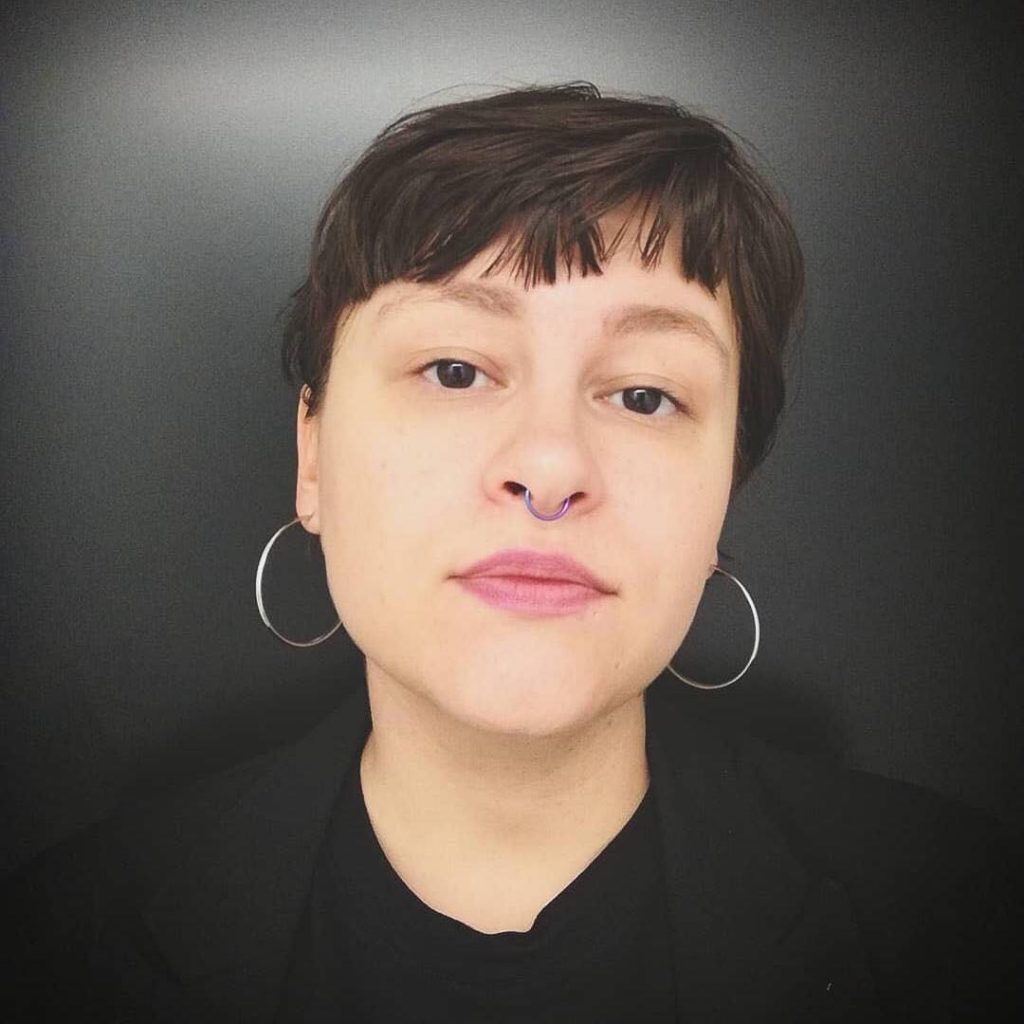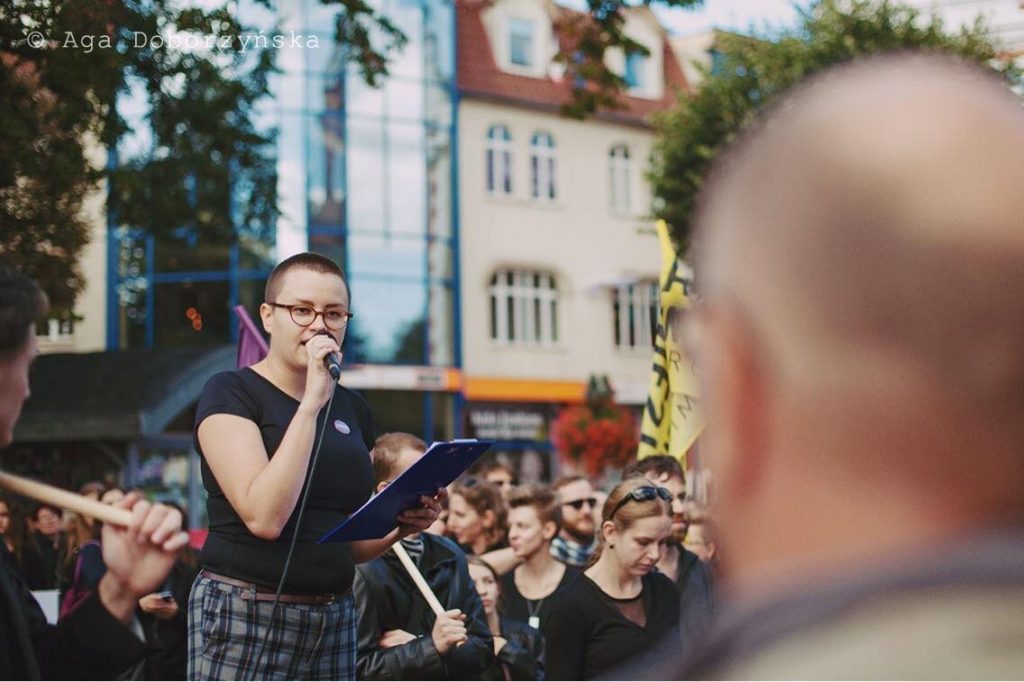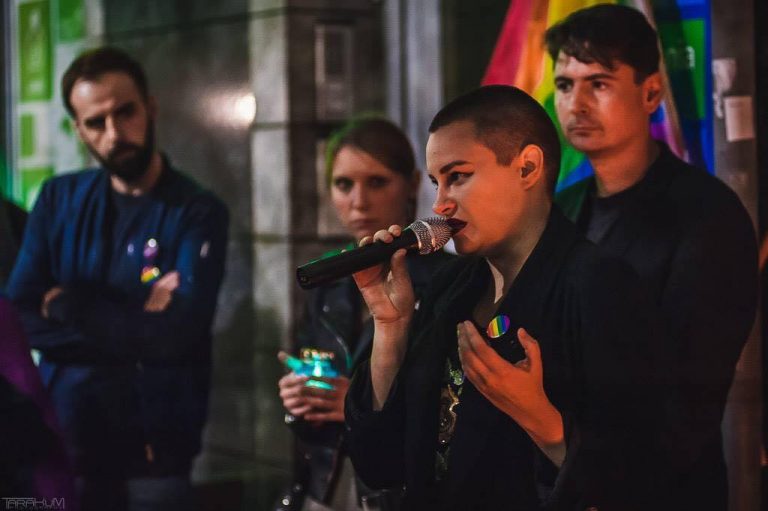What does it feels like to be Polish and queer and living in Iceland?
Polish people make up the largest ethnic minority group in Iceland, presenting more than 40% of all immigrants in Iceland as of 2018. Last year it was estimated that over 19.000 people of Polish people were living in Iceland. We at GayIceland where therefor keen to find out more about the Polish community in Iceland, the queer part of it to be more exact and what it feels like to be Polish and queer and living in Iceland. Today we start that journey by interviewing a young woman who has settled here and has no plans on going back to Poland.

When Magda Doborzyńska first moved to Iceland from Poland, she was only planning on staying for a few months. She was having trouble finding work in her home country and was offered a job in the Westfjords. A year later, she has no plans on going back. “I found love here,” says Magda, who met her girlfriend about seven months ago, after moving to Reykjavík, and now she’s working in the city while learning Icelandic.
Reflecting on her experiences living in Iceland with her partner, it’s the little things that stand out to Magda. “The thing that was very new for me was that no one was looking at us on the street. And also, when I say I have a partner, people aren’t assuming the gender of the person, which is a small thing but it’s really new for me,” she says.
“… there is no education in Poland about human rights and about LGBT people. There are a lot of stereotypes, and teachers are also not educated.”
In Poland, Magda was working as a political activist. She focused on human rights issues, and in particular women’s rights, LGBTQ rights and rights for people with disabilities. “It was a great adventure, but it was also very tiring,” she explains. “The political situation in Poland is really complicated now and really bad. After maybe two years of doing activism I was very, very tired.”
We don’t have any rights in Poland
In particular, Magda says the situation for LGBTQ people in Poland is very bad. “We don’t have any rights, actually. Any form of partnership, legal partnership, marriage, adoption — it doesn’t exist.” Although there is a hate crime law in Poland, Magda says it doesn’t include crimes against LGBTQ people. “A few weeks ago, our president said that he would consider a law kind of similar to the one in Russia, against homosexual propaganda. It’s just an idea, but this government is scary and they’re not supporting any human rights for anyone, especially for LGBT people.”
On the other hand, Magda says the general population in Poland seems to be more tolerant than the government. “A lot of people think that we should have a right to get married, for example,” she explains. She says that disconnect is perhaps because it comes down to the fact that the current government has promised more social programs for families and poor people. At the same time, she says the ruling party in Poland is connected to the Catholic Church, as well as some far-right and nationalist groups in the country.
“When you are poor you just want to have something to eat and you want to have a place to live and you want to have money to buy books and stuff for your children to go to school. You’re not thinking about other things that might be more abstract. You’re just thinking about what to do to get money to live, and I understand that,” she says. “The other thing is that there is no education in Poland about human rights and about LGBT people. There are a lot of stereotypes, and teachers are also not educated.”
“We don’t have any rights, actually. Any form of partnership, legal partnership, marriage, adoption — it doesn’t exist.”
“With this new government there is more space in the mainstream for some nasty ideas, like fascists and nationalists and all this hate speech they are producing. For example, someone was beaten on the street because he was holding hands with his partner. I’m sure there are a lot of stories like this, but I think people are saying it doesn’t make sense to report it to the police.”
‘Beating faggots’
Magda lived in Gdańsk, one of Poland’s biggest cities, so she says her experience in her homeland was fairly positive. She first started coming out when she was just a teenager. “I was fifteen and I was walking in a park with my sister and I told her that I think I might be interested in girls,” Magda says. “She was like, ‘yeah, that’s fine, okay.’ But coming out is a process, so I was having lots of coming outs in my life and I am still doing it.” Today, Magda identifies as pansexual.

While she doesn’t speak with her parents much, Magda says her siblings and her friends have all been accepting. “I was living in a big city so I felt kind of safe,” she says. “I can’t say that I experienced real homophobia, like abuse or things like that. But, of course there a lot of people who have.”
Although she may not have experienced any homophobic violence, Magda says there have been moments that have frightened her. “There was one situation I remember very well,” she explains. “It was seven years ago, and I was coming back home with my girlfriend. We were living in a not very crowded district and it was in the late evening, so it was dark, and there weren’t a lot of people on the street.
We were holding hands and there was a guy who was walking just behind us, and he was talking on the phone. At one moment we heard that he was saying something about ‘beating faggots.’ I was so scared, so we stopped holding hands and we headed straight to a nearby train station to wait a bit, because I was too scared to continue this walk with this guy following us. I don’t think he saw us, and I don’t want to think about what would have happened if he did.”
Polish people are ‘waking up’
Despite the homophobic policies of Poland’s current government, Magda still holds out hope for the future. “I can’t say that it’s only getting worse. It’s getting better at the same time. But I think we need a lot of time to make it work,” she says. “There are a lot of great people in Poland who are fighting and there are a lot of young people who are getting involved in activism. It’s great because there is a new perspective and they are very brave, and I’m really impressed with their work.”
Magda says she feels like Polish people are “waking up” right now to different human rights issues. “In 2016 there was this whole thing related with abortion law in Poland and at that time there was a lot of mass demonstrations. A lot of people came into the street to say no to the law,” she says. “This whole thing showed us that there are a lot of Polish women who want to be active and who want to fight about women’s rights. But not only women’s right because when you are an activist you are meeting other activists and you are learning about other people. I believe in an intersectional feminism, and I believe that you can’t fight only for women’s rights or for LGBT people or poor people. You have to fight for everything in the same moment. You have to think about other aspects of discrimination.”
“I think there is a cultural difference between the typical Icelandic person and the typical Polish person. But I think it’s probably great for these people that they are coming to such a nice country full of different people.”
In Iceland, Magda says she hasn’t been very active in either the local Polish community or the local LGBTQ community. After her experiences in Poland, she says she’s putting her activism on the back burner. “I’m just having a rest from any activism,” she says. “But I think I would like to do some stuff here in the future, maybe for the Polish community, but I’m not sure yet what I want to do. I just need some good rest now.”

Although she has heard that Icelanders have some stereotypes about Polish immigrants, she also says she hasn’t experienced any xenophobia firsthand. “I think there is a cultural difference between the typical Icelandic person and the typical Polish person,” she says. “But I think it’s probably great for these people that they are coming to such a nice country full of different people. There are lots of different people from different countries here, and I believe that if a person is open to learning something from other people then there’s a hope to communicate.”
Main photo: taken by Karol Makurat | Tarakum.pl


